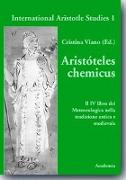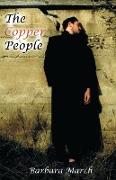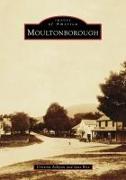Aristoteles chemicus
BücherAngebote / Angebote:
Il libro IV dei Meteorologica di Aristotele, definito spesso come un 'trattato di chimica', si trova al centro di una ricca e ininterrotta attività di esegesi e di appropriazione che percorre il pensiero greco per incontrare una grande fortuna nel mondo arabo e in tutto il medioevo latino. Gli interventi raccolti in questo volume mettono in luce come l'Aristoteles chemicus medievale sia in realtà un' autorità composita, in cui le idee aristoteliche originarie si mescolano con le interpretazioni e le attribuzioni spurie, fino a accogliere delle novitates, come le cosmogonie monistiche musulmane o la dottrina della trasmutazione dei metalli.
***
The Fourth Book of Aristotle's Meteorologica has been defined as a 'Chemical Treatise'. It is the starting point of a long, rich activity of exegesis and appropriation, from later Greek philosophy to Arab and Latin Medieval thought. The papers in this volume take the reader through the fundamental stages of this history of interpretations and show him that in the Middle Ages Aristoteles chemicus was a composite authority which united Aristotelian ideas with spurious interpretations and novitates such as Muslim monistic cosmogonies or the theory of metal transmutation.
. This is an extraordinarily rich volume by a talented group of scholars. For those like myself who are familiar with Aristotle's Meteorology and its Greek commentators but not with the alchemical and hermetic traditions, this volume is full of revelations and historical surprises. At times one senses that the actual fourth book of the actual Meteorology by the actual Aristotle is playing no actual role at all. But this is to ignore the nature of history. For even when there are only the faintest of echoes of Meteor. 4 in the texts being discussed, the skilful historian can trace that echo back to its source. Intellectual history is a study of the creative interpretation and reinterpretation of tradition, and in this collection of essays we see how even the attempt to represent a text faithfully leads over and over again to innovation. The history told in these essays is also, of course, a small thread in the fabric of that amazing tale of the creative transmission of the texts and ideas of classical and Hellenistic Greece through Islamic culture to the Latin west, and their creative encounters with Greek manuscripts tracing back to the same sources. It is, therefore, a reminder of a time when scientific and philosophical creativity emerged from the cultural interactions of East and West - at this moment in history, a valuable reminder.
(James G. Lennox in Aestimatio 1, 2004, 138-147)
Folgt in ca. 2-3 Arbeitstagen




